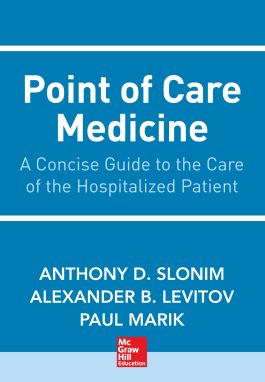Point of Care Medicine
Step 1. Download Adobe Digital Editions Both PC and Mac users will need to download Adobe Digital Editions to access their eBook. You can download Adobe Digital Editions at Adobe's website here.
Step 2. Register an Adobe ID if you do not already have one. (This step is optional, but allows you to open the file on multiple devices) Visit account.Adobe.com to register your Adobe account.
Step 3: Authorize Adobe Digital Editions using your Adobe ID. In Adobe Digital Editions, go to the Help menu. Choose “Authorize Computer.”
Step 4: Open your file with Adobe Digital Editions. Once you’ve linked your Adobe Digital Editions with your Adobe ID, you should be able to access your eBook on any device which supports Adobe Digital Editions and is authorized with your ID. If your eBook does not open in Adobe Digital Editions upon download, please contact customer service
I. Diseases of heart and great vessels
II. Pulmonary and pulmonary vascular disease. Industrial illnesses of the lungs. Disorders of sleep. Special considerations in morbidly obese.
III. ENT, diseases of oral cavity and diseases of neck and upper airways
IV. Ophthalmology and eye examination
V. Diseases of the Gastrointestinal tract and hepatology
VI. Diseases of kidney and urinary system. Diseases of homeostasis.
VII. Pelvic diseases, gynecology and obstetrics for non-obstetrician.
VIII. Testicular diseases
IX. Hematological and oncological diseases. Care of bone marrow transplant patients, and those receiving chemotherapy. Special considerations in Sickle cell disease patient
X. Infectious diseases. Antibiotic, antifungal and antiviral drugs. Care of patient with HIV on and off HAART. Foreign borne and traveler illnesses
XI. Endocrinology and Metabolic disorders
XII. Rheumatologic and connective tissue diseases
XIII. Peripheral vascular diseases arterial and venous
XIV. Neurology and neuromuscular disorders
XV. Psychiatry for non psychiatrist
XVI. Skin diseases and skin signs of systemic illness
XVII. Allergic and drug related illnesses, Neuroleptic Malignant Syndrome and Serotonin Syndrome. DOD, poisons and antidotes.
XVIII. Environmental illnesses, accidental hypothermia and hyperthermia
XIX. Evaluation of trauma and postoperative patient for non surgeon. Surgical “clearance”
Supplements:
- Common procedures guide
- Algorithms for 10-15 common problems
- Glossary and abbreviation guide
- ACLS
- ICU survival guide
- Commonly used protocols
- Pictorials ( Anatomy, EKGs, Echoes, CXR etc large icon size)
- Commonly used formulas and calculation : i.e. anion gap, osmolar gap, Aa gradient etc.
- Index
Point of Care Medicine delivers the most patient-care information in the least amount of words possible. Within its pages you will find the evidence-based information necessary to immediately manage the most common problems occurring in hospitalized adult patients--ranging from chest pain and renal failure to anemia and complications of pregnancy.

